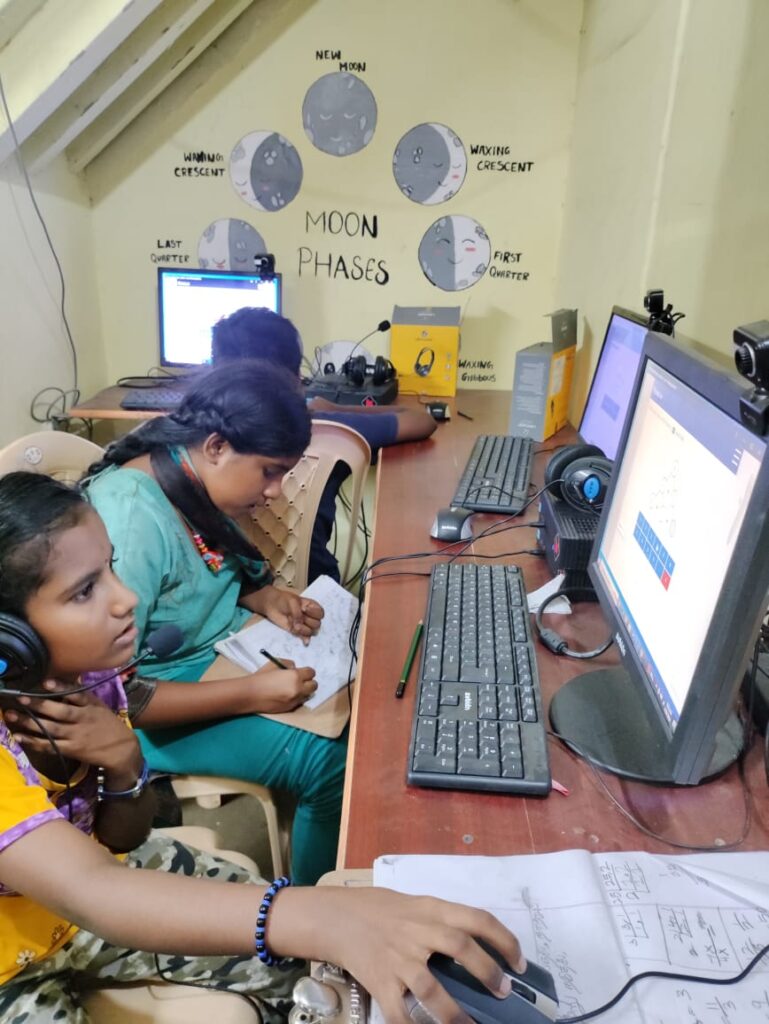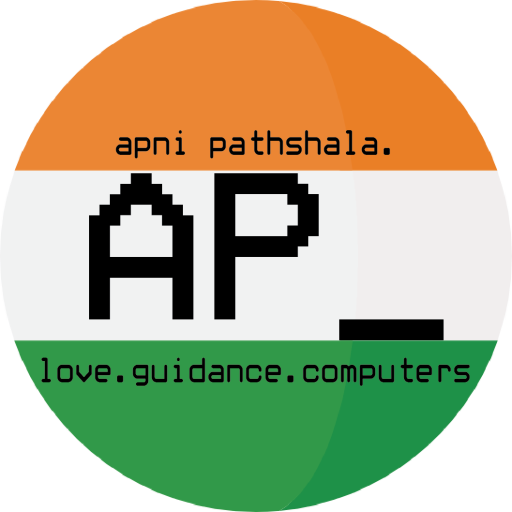The Art of Independent Study: Building Self-Reliance

Mastering the art of independent study empowers individuals to take charge of their learning journey, fostering self-reliance and personal growth.
Hands-On Learning: The Power of Experiential Education

Apnipathshala Hands-On Learning: The Power of Experiential Education Experiential education involves immersive experiences that allow individuals to directly engage with the subject matter. Rather than passively absorbing information, students participate in activities that require active problem-solving and decision-making. Let’s Start In the realm of education, experiential learning has emerged as a transformative approach that goes beyond textbooks and classrooms. It emphasizes hands-on experiences and active engagement, allowing students to learn by doing. This blog explores the significance of experiential education and how it fosters deeper understanding, skill development, and personal growth among learners.Experiential education encourages students to immerse themselves in real-world situations, applying theoretical knowledge to practical scenarios. This hands-on approach enables learners to grasp concepts more effectively as they directly experience the subject matter. Whether it’s conducting experiments in a science lab, practicing problem-solving in a simulated environment, or engaging in community projects, experiential learning makes education relevant and meaningful. One of the key benefits of experiential education is its ability to enhance critical thinking and problem-solving skills. By actively engaging in tasks and challenges, students learn to analyze situations, make decisions, and adapt strategies based on outcomes. This process empowers learners to become proactive problem solvers, equipped with practical skills that are essential for success in academic and professional endeavors.Moreover, experiential learning promotes collaboration and interpersonal skills by encouraging teamwork and communication. Working together on projects or activities fosters cooperation, empathy, and mutual respect among students. They learn to appreciate diverse perspectives, negotiate differences, and leverage collective strengths to achieve common goals. These interpersonal skills are crucial for building effective relationships and thriving in a collaborative environment. Hands-on learning plays a vital role in developing practical skills and fostering a deeper understanding of concepts. It enables students to apply theoretical knowledge in real-world contexts, preparing them for future challenges. Benefits of Experiential Education Improved Retention and Understanding Research shows that experiential learning leads to higher retention rates compared to traditional teaching methods. By actively participating in activities, students remember information better and can apply it more effectively. Development of Critical Thinking Skills Experiential education promotes critical thinking by encouraging students to analyze situations, make decisions, and reflect on outcomes. These skills are crucial for problem-solving and decision-making in various aspects of life. Fostering Creativity and Innovation Engaging in hands-on experiences sparks creativity and innovation. By exploring different perspectives and experimenting with solutions, students develop a mindset that values creativity and embraces change. Implementing Experiential Education Designing Engaging Experiences To implement experiential education successfully, educators must design engaging activities that align with learning objectives. By incorporating elements like group collaboration and real-world challenges, they can create meaningful experiences for students. Providing Opportunities for Reflection Reflection is a key component of experiential learning. By encouraging students to reflect on their experiences, educators help them gain insights, identify strengths and areas for improvement, and connect learning to personal growth. Integrating Real-World Applications Experiential education bridges the gap between theory and practice by integrating real-world applications into the curriculum. By connecting learning to authentic experiences, students develop a deeper appreciation for the relevance of their education. Frequently Asked Question How does experiential education differ from traditional teaching methods? Experiential education differs from traditional teaching methods by focusing on hands-on learning experiences rather than passive instruction. It emphasizes active participation, real-world applications, and practical problem-solving. Instead of just listening or reading, students actively engage in activities that deepen their understanding and skills. What are some examples of successful experiential education programs? Outdoor education programs that involve wilderness expeditions and environmental studies. Internship or co-op programs where students gain work experience in their field of study. Project-based learning initiatives that require students to solve real-world problems through research and collaboration. Service-learning programs that integrate community service with academic learning, fostering civic engagement and social responsibility. How can educators incorporate experiential learning into their curriculum effectively? Designing hands-on activities that align with learning objectives and course content. Providing opportunities for students to apply theoretical knowledge in practical settings. Encouraging reflection and discussion to deepen understanding and connect experiences to concepts. Offering choices and autonomy in learning tasks to promote engagement and ownership. Leveraging technology and resources to create immersive learning experiences inside and outside the classroom.
Why Every Student Should Use Twitter Regularly

Apnipathshala Why Every Student Should Use Twitter Regularly In today’s digital age, social media platforms have become an integral part of our daily lives, offering a plethora of opportunities for communication, networking, and learning. Among these platforms, Twitter stands out as a powerful tool that every student should consider incorporating into their routine. Here’s why: Let’s Start First and foremost, Twitter provides students with a platform to showcase their work and achievements to a wide audience. By regularly sharing their academic projects, research findings, or creative endeavors on Twitter, students can gain exposure and recognition for their efforts. This not only helps in building a professional online presence but also opens doors to potential opportunities such as internships, collaborations, or even job offers in the future.Moreover, Twitter serves as a valuable resource for staying updated on current events, trends, and developments in various fields of interest. By following relevant accounts, industry experts, and thought leaders, students can access a wealth of information and insights that complement their academic studies. Engaging in conversations, participating in Twitter chats, or following hashtags related to their areas of study can enrich their learning experience and foster intellectual growth. Furthermore, Twitter facilitates networking and connection-building among students, educators, and professionals from diverse backgrounds. Through interactions with peers, mentors, and industry professionals on Twitter, students can expand their social and professional networks, exchange ideas, seek advice, and gain valuable insights into potential career paths or academic pursuits. Building meaningful relationships on Twitter can lead to collaborative opportunities, mentorship, and lifelong connections that transcend geographical boundaries.In addition to its educational benefits, Twitter offers a platform for students to engage in discussions, debates, and activism on social and political issues that matter to them. By joining relevant conversations, sharing perspectives, and amplifying voices on Twitter, students can contribute to important dialogues, raise awareness about social justice issues, and advocate for positive change in their communities and beyond. Twitter empowers students to use their voices for good and make a meaningful impact on the world around them. If students use Twitter on a daily basis, they will come to know the following things: Unlocking Education, One Tweet at a Time! 1) Interacting with Thought Leaders: Twitter provides a platform for direct interaction with thought leaders in various fields. By engaging with their tweets, asking questions, and sharing insights, you can learn from their expertise and gain valuable knowledge and inspiration. 2) Following Experts in Your Industry: By following experts in your industry on Twitter, you can stay updated on the latest trends, developments, and best practices. Their tweets often contain valuable insights, resources, and tips that can enhance your understanding and proficiency in your chosen field. 3) Participating in Tweetchats for Learning: Tweetchats are organized discussions on Twitter around specific topics, usually identified by a hashtag. Participating in tweetchats allows you to connect with like-minded individuals, share experiences, and exchange ideas while learning from others’ perspectives and expertise. 4) Utilizing Non-Productive Time in Tweeting: Twitter can be a productive way to utilize non-productive time, such as waiting in line or during breaks. You can quickly scroll through your Twitter feed, engage with interesting content, and even share your own thoughts or updates, making the most of idle moments throughout the day. 5) Defining Your Twitter Experience by Whom You Follow: The accounts you choose to follow on Twitter significantly impact your experience on the platform. By curating your feed with accounts that align with your interests, goals, and values, you can tailor your Twitter experience to be informative, engaging, and relevant to your personal and professional growth. 6) Sharing Interesting and Educational Content: Twitter offers a platform to share not only your own thoughts and insights but also interesting and educational content you come across. By sharing articles, research findings, infographics, and other valuable resources, you contribute to a culture of learning and knowledge sharing within your network. In conclusion, Twitter has emerged as a valuable tool for students to enhance their academic, professional, and personal development. By actively engaging with Twitter, students can share their work, stay informed, expand their networks, and contribute to meaningful conversations that shape our society. Incorporating Twitter into their daily routine can empower students to seize opportunities, broaden their horizons, and make a positive difference in the world. So, why wait? Start tweeting and unlock the endless possibilities that Twitter has to offer. Created by -Gaurav Sharma
Unlocking Your Creativity: Unleash Your Inner Visionary (Even in Finals Season!)
Unlocking Your Creativity: Unleash Your Inner Visionary (Even in Finals Season!) Feeling creatively stuck? You’re not alone, especially during the dreaded finals season. But fear not, fellow student, because the well of creativity lies within you, waiting to be tapped! Ditch the coffee-fueled all-nighters and dive into these fun and effective exercises to reignite your imagination and boost your creative mojo: Facebook Twitter Instagram 1. Embrace the Unexpected: Freewriting: Set a timer for 5 minutes and write whatever pops into your head, without judgement. Go wild, silly, even nonsensical! This stream-of-consciousness approach can spark unexpected connections and ideas. Sensory Dives: Close your eyes and focus on a single sense: sight, touch, smell, taste, or sound. Describe it in detail, noting every nuance. This heightened awareness can unlock new perspectives and inspire creative storytelling. Random Inspirations: Grab a book (any book!), open it to a random page, and choose a random word. Use it as a springboard for a poem, story, drawing, or song. Let the unexpected fuel your creativity! 2. Challenge Your Routine: Art Swap: Visit a museum or gallery with a friend, but do a twist! Pick an art piece each, study it closely, and then create something inspired by it, but in a completely different style (painting from a sculpture, writing a rap from a portrait, etc.). Switch Roles: Imagine you’re a famous writer, musician, or designer. How would they approach this assignment or project? Channel their energy and perspective to break free from your usual way of thinking. Embrace Constraints: Give yourself a creative challenge with limitations. Write a poem with only two syllables per line, create a song using only five notes, or design a sculpture using only recycled materials. Constraints can often spark innovation! 3. Collaborate and Connect: Brainstorming Blitz: Gather your friends and brainstorm ideas for a creative project, anything from a short film to a campus event. The more outlandish, the better! Build on each other’s ideas and let the energy flow. Skill Swap: Teach someone a skill you’re good at, and learn a new one from them in exchange. Sharing knowledge and expanding your skillset can open up new creative avenues. Nature Walk Wonders: Take a break from the screen and explore nature. Observe the sights, sounds, and textures around you. Sketch a leaf, write a haiku about a bird, or compose a melody inspired by the wind. Nature is a powerful source of inspiration. Bonus Tip: Celebrate your victories! No matter how small, acknowledge your creative achievements. Keep a journal to track your progress and admire your creations. Recognizing your own creativity builds confidence and fuels further exploration. Remember, creativity is a muscle that needs exercise. These are just a few ideas to get you started. Embrace the playful spirit, experiment fearlessly, and most importantly, have fun! You might just surprise yourself with the depth and diversity of your own creative potential.
The Networked Advantage: Building Relationships for Career Launch and Long-Term Success
The Networked Advantage: Building Relationships for Career Launch and Long-Term Success In today’s competitive job market, having the right skills and qualifications is just the first hurdle. The secret weapon that sets apart top performers? A strong network. While some may view networking as awkward handshakes and forced conversations, it’s far more than just exchanging business cards. It’s about cultivating genuine relationships, building bridges, and creating a support system that empowers your career journey. Why Network Like a Pro? Open Doors: Your network extends your reach, connecting you to hidden opportunities, unlisted jobs, and valuable industry insights. Think of it as insider knowledge that unlocks previously unseen possibilities. Boosted Credibility: Recommendations from trusted connections carry weight. A strong network acts as your professional cheer squad, vouching for your skills and potential, giving you that extra edge over the competition. Knowledge is Power: Your network is a wealth of expertise. Learn from industry veterans, gain mentorship from seasoned professionals, and tap into diverse perspectives that broaden your horizons and enhance your skillset. Mutual Growth: Networking isn’t a one-way street. By offering your own support, sharing resources, and providing assistance, you build trust and strengthen the network, creating a dynamic ecosystem of mutual benefit. From Awkward to Awesome: Networking Made Easy Building a strong network doesn’t require a superhero cape. Here are some actionable tips to turn networking anxiety into success: Start Small: Begin with your existing circles – classmates, colleagues, friends, family. Attend alumni events, volunteer in your community, or join online professional groups related to your field. Be an Active Listener: Networking is about building genuine connections. Show genuine interest in others, ask thoughtful questions, and be an attentive listener. People remember those who make them feel valued. Offer Value, Not Just Requests: Don’t approach networking with just a “what can you do for me?” attitude. Offer your own expertise, share helpful resources, or simply be a supportive and encouraging presence. Follow Up and Stay Connected: Networking is an ongoing process. Make it a point to stay in touch with your connections, send updates on your career progress, and offer congratulations on their achievements. This fosters long-term relationships and strengthens your network over time. Remember, your network is a living, breathing ecosystem that thrives on genuine connections and mutual support. By investing time and effort in building meaningful relationships, you unlock a world of opportunities, accelerate your career growth, and create a lasting support system that empowers you to achieve your full potential. So, get out there, connect, and watch your career take flight!
Life After Graduation: Tips for Navigating the Transition from Student to Professional
Life After Graduation: Tips for Navigating the Transition from Student to Professional Graduation: a moment of elation, relief, and…terrifying uncertainty. You’ve traded in textbooks for resumes, late-night study crams for early morning commutes, and the familiar comfort of campus for the (sometimes) intimidating world of work. But fear not, fellow graduates! This transition, while daunting, is also exhilarating and full of possibilities. To help you navigate the journey from student to professional, we’ve compiled some essential tips: Create Your Own Structure: Gone are the days of rigid schedules and fixed deadlines. Now, it’s all about setting your own goals and establishing a routine that works for you. Start small by building a daily or weekly schedule that balances work, personal growth, and (crucially) leisure time. Remember, structure doesn’t mean rigidity – be flexible and adjust as needed. Readjust Your Expectations The professional world is not academia. Forget instant gratification and A-star validation. Progress in the workplace is often gradual, with learning curves and occasional setbacks. Embrace the “beginner’s mind” and celebrate every small victory, from mastering a new skill to nailing a presentation. Explore, Explore, Explore: This is your chance to experiment! Don’t be afraid to try different roles, projects, or even industries. Shadow someone in a different department, volunteer for a non-profit, or take an online course in an entirely new field. You might surprise yourself with what you discover. Network like a Pro: Building relationships is key in any field. Attend industry events, connect with professionals on LinkedIn, and reach out to alumni for informational interviews. Not only will you expand your knowledge, but you might also uncover hidden opportunities. Be a Sponge, Not a Spongecake: Soak up everything you can! Ask questions, seek feedback, and be open to learning from everyone around you, regardless of their position. Remember, your colleagues and mentors are valuable resources, not competition. Embrace theHustle: The transition won’t be easy. There will be long days, frustrating moments, and days when you miss the carefree days of college. But remember, your hard work and dedication will pay off. Stay positive, be persistent, and learn from your mistakes. Take Care of Yourself: This isn’t a sprint, it’s a marathon. Prioritize your well-being. Eat healthy, exercise regularly, and get enough sleep. Don’t be afraid to say no, delegate tasks, and take breaks when needed. A healthy and happy you is a productive and successful you. Celebrate Your Wins(Big and Small): Take the time to acknowledge your achievements, no matter how seemingly insignificant. Did you land your first interview? Learn a new software program? Finished a challenging project? Treat yourself to a nice dinner, a relaxing spa day, or simply a pat on the back. Celebrating your victories keeps you motivated and reminds you of your progress. Remember,You’re Not Alone: We’ve all been there. Feeling lost, overwhelmed, and unsure of the future is completely normal. Lean on your friends, family, and support network. Talk to your peers, seek mentorship, and remember, there are countless resources available to help you navigate this transition. Enjoy theJourney: Yes, there will be challenges and setbacks, but there will also be amazing experiences, unexpected opportunities, and moments of personal growth. Embrace the unknown, stay curious, and most importantly, have fun! Bonus Tip: Keep this blog post bookmarked! It’s a handy reference guide to come back to whenever you need a little boost of inspiration or a reminder of what you’re capable of. Graduation may mark the end of one chapter, but it’s also the exciting beginning of the next. So, put on your professional hat, grab your determination, and get ready to conquer the world! Remember, you’ve got this!
Student Hustle: Turn Your Skills into Cash with Freelancing!
Student Hustle: Turn Your Skills into Cash with Freelancing! Hey fellow students, listen up! Tired of ramen noodles and wishing you could buy that cool new gadget? Well, there’s a secret weapon in your backpack: your skills! Freelancing can be your ticket to extra cash, cool experiences, and a head start on your career. Let’s break down why freelancing rocks for students: 1. Be Your Own Boss (Kind of): Ditch the rigid schedules and set your own hours. Work when you’re most productive, whether it’s a pre-sunrise writing burst or a post-pizza coding bender (we don’t judge). 2. Skills Up for Real: Freelancing isn’t just about making money, it’s about putting your learning into action. Hone your writing, design, coding, or marketing skills on real projects for real clients. Boom, instant experience boost! 3. Flexible Fun: Want to write about video games? Design websites for local businesses? Edit travel videos? With freelancing, the possibilities are endless! Choose projects that spark your passion and keep things interesting. 4. Cash Flow FTW: Ramen may be delicious (in a pinch), but let’s be real, extra income is awesome. Earn money to treat yourself, save for that dream trip, or even contribute to tuition (adulting, ugh). 5. Build Your Network: Freelancing connects you with professionals in your field. Get valuable mentorship, build your network, and maybe even land your dream internship or future job – all thanks to your freelance hustle! So, how do you get started? 1) Find your niche: What are you good at and passionate about? Writing, graphic design, social media management? Narrow it down to focus on your strengths.2) Build your portfolio: Show off your skills! Create a website or online portfolio showcasing your best work, even if it’s just school projects.3) Market yourself: Spread the word! Tell friends, family, and professors you’re open for freelance work. Social media can be your friend, too.4) Choose the right platform: Upwork, Fiverr, Freelancer.com – there are tons of platforms for students to find freelance gigs. Do your research and pick one that suits your skills and budget.5) Deliver value: Be professional, reliable, and always meet deadlines. Communication is key – keep your clients in the loop and make sure they’re happy with your work.
A Beginner’s Guide to Starting Web Development with WordPress
Let’s Start A Beginner’s Guide to Starting Web Development with WordPress Are you a student eager to dip your toes into the exciting world of web development? Look no further! In this simple guide, we’ll walk you through the basics of getting started with WordPress, a user-friendly platform that makes web development a breeze. https://youtu.be/Rcv3vvLs8ug?si=G8dpzsvlrftDJkv0 This video will assist you in grasping the basics of WordPress introduction. Step 1: Understanding the Basics What is WordPress? WordPress is a popular Content Management System (CMS) that allows you to build and manage websites without diving into complex coding. It’s like the building blocks of a website – you pick the elements you want, and WordPress puts them together for you. Learn Now Step 2: Getting the Essentials 1. A Computer and Internet Connection: Make sure you have a computer or laptop and a reliable internet connection. WordPress operates online, so being connected is essential. 2. Web Browser: Choose a web browser like Google Chrome or Mozilla Firefox. WordPress is browser-based, meaning you’ll be working on your site through your browser. 3. Creativity and Enthusiasm: Bring your creativity and enthusiasm! WordPress allows you to design and customize your site, so let your imagination run wild. Install Now This video will guide you on how to easily open WordPress and kickstart your development journey. This video will assist you in grasping the basics of WordPress introduction. Step 3: Exploring the WordPress Dashboard 1. Posts vs. Pages: In WordPress, content is divided into “Posts” and “Pages.” Posts are for blog entries, while pages are for static content like your About Me or Contact page. 2. Themes: Choose a theme to define the look and layout of your site. WordPress has plenty of free options, so find one that suits your style. 3. Customization: Experiment with customization options. You can change colors, fonts, and more. Don’t be afraid to try different things – you can always go back if you don’t like the changes. Explore Dashboard Step 4: Adding Content Start The Development : 1. Create Your First Post: Go to the “Posts” section and click “Add New.” Write your content, add images, and hit “Publish.” 2. Add Pages: For static content like an “About” page, go to “Pages” and click “Add New.” Fill in the details and publish. Add Content This will guide you in initiating the website development process once you’ve accessed the WordPress dashboard. The playlist above provides everything you need to effortlessly build your portfolio website within a week using WordPress. Step 5: Learning More 1. Tutorials and Documentation: Explore WordPress tutorials and documentation to deepen your understanding. WordPress has a wealth of resources to help you navigate and master its features. 2. Online Communities: Join online communities like forums and social media groups. You can learn from others, ask questions, and get tips on improving your site. Make Portfolio Step 6: Practice, Experiment, and Have Fun! The best way to become a WordPress web developer is through hands-on experience. Experiment with different features, try out new themes, and most importantly, have fun building your corner of the internet! Remember, everyone starts somewhere, and with WordPress, you’re on a journey where creativity meets technology. Happy developing! WordPress Advance The YouTube channel above is a valuable resource for learning advanced WordPress techniques, enabling you to create incredible websites.
Why Students Love WordPress: The Easy-Peasy Website Magic!

Get started today Why Students Love WordPress: The Easy-Peasy Website Magic! Hey, awesome students! 🌟 Today, let’s talk about something super cool – WordPress! Wait, what’s that? It’s like a magic wand for making websites, and here’s why it’s so important and easy for students like you. WordPress Here are the reasons why you should learn WordPress: 1. No Techy Headaches: Imagine trying to build a spaceship with lots of buttons and switches. Sounds tough, right? Well, WordPress is like a spaceship, but with buttons that are super easy to press! You don’t need to be a tech genius – just click, type, and voila! Your website is ready to shine. 2. It’s Free and Friendly: Guess what? WordPress won’t ask you for your lunch money – it’s free! Yep, you heard it right. You can use it without spending a single cent. Plus, it’s like having a friendly robot guide. It helps you step by step, making sure you’re never lost in the big world of websites. 3. Your Creativity, Your Rules: Have you ever wanted to be the boss of your own playground? Well, with WordPress, you’re the boss of your website! You can choose how it looks, what colors it wears, and even what cool things it can do. It’s like having your own magical canvas to paint your online dreams. 4. Super Easy to Learn: Imagine learning to ride a bike with training wheels. WordPress is like those training wheels for making websites. It’s designed for beginners, so you can learn without any stress. Click here, type there – and ta-da! You’re on your way to becoming a web wizard. 5. Homework Helper: Have a school project or a super cool idea you want to share with the world? WordPress is your homework hero! You can turn your ideas into a digital masterpiece that everyone can see. It’s like turning your homework into a magic show that everyone applauds! 6. Join the Website Party: Guess what? Everyone’s using WordPress! It’s like being invited to the coolest party in the digital town. Your friends, teachers, and even superheroes probably have their own WordPress websites. Join the party and let your creativity sparkle! Here is the video and playlist link where you can easily learn WordPress and create your first website: Have a school project or a super cool idea you want to share with the world? WordPress is your homework hero! You can turn your ideas into a digital masterpiece that everyone can see. It’s like turning your homework into a magic show that everyone applauds! Video Playlist
Why Every Student Should Learn Computers Today

Why Every Student Should Learn Computers Today? In today’s world, computers are like magic boxes that can do so many amazing things. You might be wondering, “Why should I bother learning about them?” Well, here are some super simple reasons why every student should learn about computers: Why It is Important 1 Everything is Digital Imagine a world where everything is digital – from sending messages to doing homework. Learning about computers helps you understand and use the cool digital tools that make our lives easier. 3 Super Useful for School Computers are like superhero sidekicks for your schoolwork. You can type your assignments, create cool presentations, and do research faster than flipping through heavy books. 2 Explore the Internet Ever heard of a place called the internet? Learning about computers lets you explore this magical land where you can find information, play games, and even talk to people from all around the world. 4 Become a Problem Solver Learning about computers turns you into a little detective. You can solve problems, find answers, and even create your own games or stories. It’s like having a superpower for fixing things! 5 Prepare for the Future Guess what? In the future, knowing about computers will be like having a secret code. It opens doors to awesome jobs and lets you be part of the cool stuff happening in technology. 7 Express Yourself Computers are like magic canvases where you can create art, write stories, and express yourself. Learning how to use them lets you share your thoughts and ideas with the world in exciting ways. 6 Make Friends with Coding Coding might sound like a secret language, but it’s not as tricky as it seems. Learning to code is like telling the computer what to do, and it can be a lot of fun. Plus, it’s a skill that can impress your friends! 8 Connect with Friends Remember those times you couldn’t hang out with friends? Computers make it possible to chat, play games, and share funny pictures even when you’re not in the same place. It’s like having a virtual playground! So, there you have it – learning about computers is like unlocking a treasure chest of opportunities. It’s not just for the tech wizards; it’s for everyone who wants to explore, create, and be part of the digital adventure. So, what are you waiting for? Let’s dive into the world of computers and discover all the amazing things they can do!
